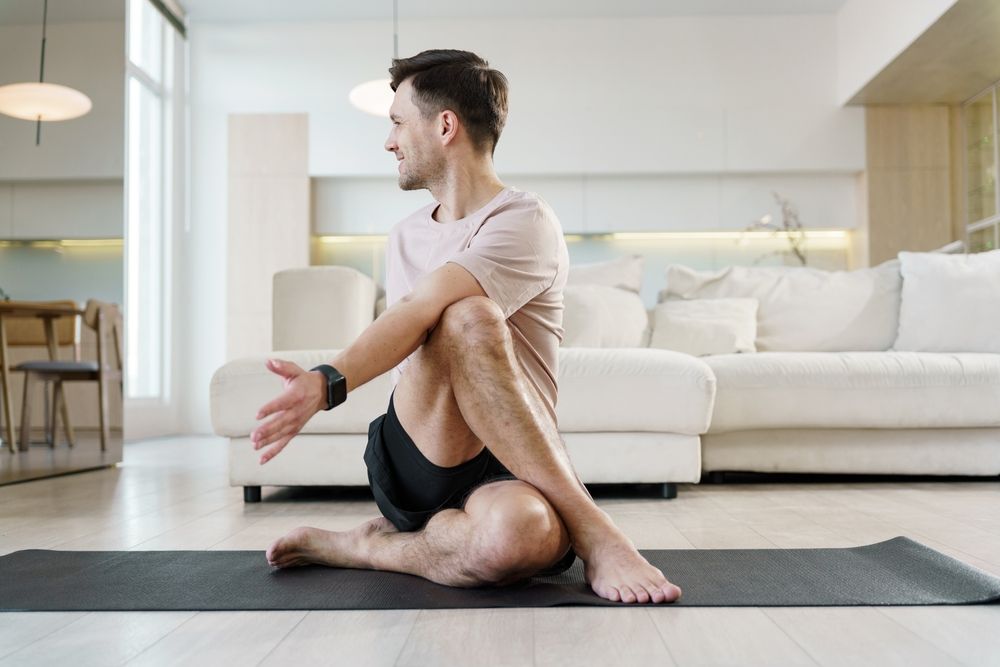Mental toughness is a critical trait that enables individuals to persevere through challenges, stay focused under pressure, and maintain a positive attitude even in difficult situations. While mental toughness is often associated with psychological resilience, physical fitness plays a significant role in developing this quality. Engaging in regular physical exercise not only strengthens the body but also fortifies the mind, enhancing your ability to cope with stress, adversity, and setbacks. This guide explores how physical fitness can be a powerful tool in building mental toughness, offering practical strategies to help you develop both physical and mental resilience.
Understand the Connection Between Mind and Body
The connection between physical fitness and mental toughness is rooted in the mind-body relationship. Physical exercise stimulates the release of endorphins, which are natural mood elevators that reduce stress and improve overall well-being. Additionally, regular exercise helps regulate the body’s stress response, making you more resilient to emotional and psychological challenges. By recognizing the profound connection between your physical and mental states, you can use exercise as a means to strengthen your mental toughness. Embracing this holistic approach allows you to develop a more balanced and resilient mindset.
Set Challenging but Achievable Fitness Goals
Setting challenging but achievable fitness goals is a key strategy for developing mental toughness. When you push your physical limits and work toward specific targets, you train your mind to focus, persevere, and overcome obstacles. Whether it’s running a certain distance, lifting a particular weight, or mastering a new skill, achieving these goals requires discipline, commitment, and mental fortitude. Start by setting small, incremental goals that gradually increase in difficulty. Celebrate your successes along the way, and use them as motivation to continue pushing forward. By consistently setting and achieving fitness goals, you build the mental strength to tackle challenges both in and out of the gym.
Embrace Discomfort and Challenge
Mental toughness is built by stepping out of your comfort zone and embracing discomfort. Physical fitness provides the perfect platform for this, as pushing your body during intense workouts naturally challenges your mental limits. High-intensity interval training (HIIT), endurance exercises, and strength training are all examples of workouts that require mental grit. When you face physical discomfort during a workout, resist the urge to quit. Instead, focus on pushing through the pain and completing the exercise. This practice of embracing discomfort in the gym translates to greater resilience in everyday life, helping you handle stress and adversity with greater ease.
Practice Mindfulness During Workouts
Mindfulness is a powerful tool for developing mental toughness, and it can be easily incorporated into your fitness routine. Practicing mindfulness during workouts involves staying present and fully engaged in the activity, paying attention to your breath, movements, and sensations without judgment. This focus on the present moment helps quiet the mind, reduce stress, and enhance your ability to concentrate. Mindfulness also encourages a positive mindset, which is essential for maintaining motivation and perseverance. By incorporating mindfulness into your exercise routine, you can strengthen your mental resilience and improve your overall performance.
Use Visualization Techniques
Visualization is a mental technique that involves imagining yourself successfully completing a task or achieving a goal. This practice can be incredibly effective in building mental toughness, as it helps you mentally rehearse for challenging situations and boosts your confidence. Before a workout, take a few minutes to visualize yourself completing the exercises with strength and determination. Picture yourself overcoming fatigue, pushing through discomfort, and reaching your goals. Visualization not only prepares your mind for the physical challenges ahead but also reinforces your belief in your abilities. By regularly practicing visualization, you can enhance both your physical and mental performance.

Develop a Consistent Routine
Consistency is key to developing both physical fitness and mental toughness. Establishing a regular workout routine trains your mind to stay disciplined, focused, and committed to your goals. When you consistently show up for your workouts, even on days when you don’t feel like it, you build the mental strength to persevere through challenges and setbacks. A consistent fitness routine also creates a sense of structure and stability in your life, which can reduce stress and improve overall well-being. By committing to a regular exercise schedule, you reinforce the habits and mindset necessary for developing mental toughness.
Learn from Setbacks and Failures
Setbacks and failures are an inevitable part of any fitness journey, but they also present valuable opportunities for growth. Mental toughness is developed by learning how to respond to these challenges in a constructive way. Instead of viewing a failed workout or missed goal as a defeat, see it as a learning experience that can help you improve. Reflect on what went wrong, identify areas for improvement, and use this knowledge to adjust your approach. Embracing setbacks as part of the process helps you build resilience and develop a growth mindset, both of which are essential components of mental toughness.
Incorporate Recovery and Rest
While pushing yourself physically is important for building mental toughness, it’s equally important to incorporate recovery and rest into your fitness routine. Overtraining can lead to burnout, fatigue, and injury, which can undermine both your physical and mental resilience. Make sure to schedule regular rest days and prioritize activities that promote recovery, such as stretching, yoga, and adequate sleep. Recovery is not only essential for physical healing but also for mental rejuvenation. By balancing intense workouts with proper recovery, you can maintain your mental toughness and continue making progress toward your fitness goals.
Cultivate a Positive Mindset
A positive mindset is a cornerstone of mental toughness, and physical fitness provides ample opportunities to cultivate this attitude. During challenging workouts, it’s easy to let negative thoughts creep in, but training your mind to focus on the positives can make a significant difference. Practice self-affirmation, celebrate small victories, and remind yourself of the progress you’ve made. Surround yourself with supportive and like-minded individuals who encourage you to keep going, even when things get tough. By cultivating a positive mindset, you reinforce the mental resilience needed to overcome challenges and achieve your fitness goals.
Apply Fitness Lessons to Everyday Life
The lessons you learn through physical fitness extend far beyond the gym. The discipline, perseverance, and mental toughness you develop during workouts can be applied to various aspects of your life, from work and relationships to personal challenges. By viewing physical fitness as a metaphor for life’s challenges, you can use the skills you’ve honed in the gym to navigate difficult situations with greater confidence and resilience. Whether it’s pushing through a tough project at work or overcoming personal obstacles, the mental toughness you build through physical fitness will serve you well in all areas of your life.
Developing mental toughness through physical fitness is a holistic approach that strengthens both the mind and body. By setting challenging goals, embracing discomfort, practicing mindfulness, and learning from setbacks, you can build the resilience needed to face life’s challenges with confidence. Consistency, recovery, and a positive mindset are all essential components of this process, helping you stay motivated and focused on your journey. As you continue to push your physical limits, remember that the mental toughness you develop along the way will not only enhance your fitness but also empower you to thrive in all aspects of your life.




